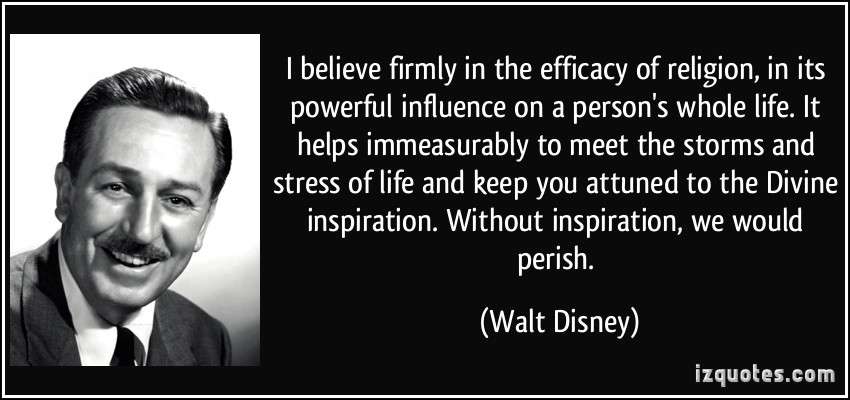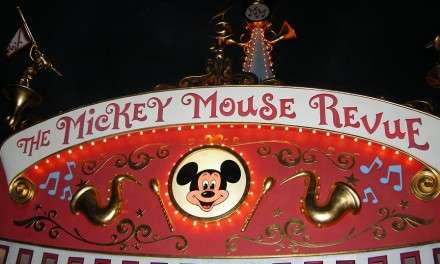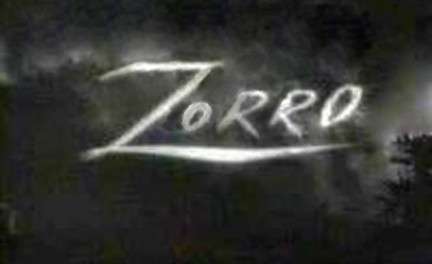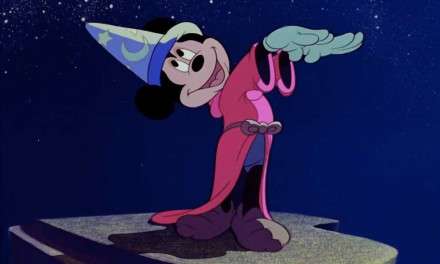With all the accomplishments and accolades that Walt Disney had accrued over his amazing lifetime, many never think about how Religion, or even what Religious affiliation Walt subscribed to influenced his remarkable career and life. But Religion did have an enormous effect on Walt, starting from his earliest recollections growing up. His Father Elias was almost always a stern and stoic man, believing in frivolity and hard work. The few times he “let his hair down” so to speak was when he played the violin on social occasions and on Sundays. But the one thing Elias was extremely strict about was Religion. And it was this early introduction to Religion that shaped Walt throughout his life and it played an important part in his Animated Features and later on, in Disneyland Park.
Another aspect of the Religious beliefs about Walt was that for many years during his lifetime, he was accused of being an Anti-Semite. This malicious and vicious belief has been debunked. But the fact of the accusation itself was hurtful to Walt, who loved and respected every Religion. Walt’s father Elias was extremely stern about Religion. He believed no adult should imbibe alcohol, smoke or engage in trivial endeavors. He did not joke around much, and gifts for children, especially candy and many books, other than the bible were not acceptable. Although Walt, with all the strict religious rearing, never attended church during his adult life; believing that the love of God was all one needed.
Walt was a very devoted Congregationalist Christian, his family’s religion. In fact Walt owes his name in a sense to religion. Walt’s father Elias was a very good friend of Reverend Walter Parr, who preached at the Saint Paul Congregational Church, where the family attended church. Elias, who learned a carpenter’s trade during his time with the Union Pacific RR line, and as a construction worker for the 1893 World’s Columbian Exposition in Chicago, volunteered his time to build a new church for Parr, when a growing congregation necessitated a larger church. Elias often stood up at the pulpit to deliver sermons when Reverend Parr was indisposed. When Elias’ wife Flora and Walter’s wife were pregnant at the same time, both men agreed to name the first born after the other. Hence, Walter Elias Disney.
Walt was unabashed about his faith, and would speak openly about it. When Disneyland was first opened, the dedication was by a Congregationalist reverend. He once said…” Whatever success I have had in bringing clean, informative entertainment to people of all ages, I attribute in great part to my Congregational upbringing and my lifelong habit of prayer. To me, today, at age sixty-one, all prayer, by the humble or highly placed, has one thing in common: supplication for strength and inspiration to carry on the best human impulses which should bind us together for a better world”
Some of the best champions of Walt and his devotion to religion were best expressed by members of his own family. Walt’s daughter said in an interview…”He was a very religious man, but he did not believe you had to go to church to be religious. He respected every religion. There wasn’t any he ever criticized. He would not even tell religious jokes”
Diane Disney Miller, Walt’s other daughter had this to say about her famous dad, in an excerpt from another interview…”I do know that he had great respect for all faiths. Rabbi Edgar Magnin, Rabbi and leader of Congregations B’nai B’rith, a Jewish temple on Wilshire Boulevard (And known as the “Rabbi to the Stars”) refers to him as “my friend Walt Disney” in his book titled “365 Vitamins for the Mind” or something like that. He was the B’nai B’rith man of the year for the Beverly Hills Chapter in 1955. My sister dated a Jewish boy for a while with no objections from either of my parents. One time, Dad said innocently but proudly, “Sharon I think it’s wonderful how these Jewish families have accepted you” “And it was a very sincere comment” Even Jewish story man Joe Grant, who worked at the studio for over 70 years, had constant opportunities to observe Walt’s interactions with other members of Jewish staff members said…”As far as I’m concerned, there was no evidence of anti-Semitism. I think the whole idea should be put to rest and buried deep”
So how did these baseless rumors even begin? One source stems from the early cartoon shorts. If you watch even today, many of the early Disney shorts has been edited by the Company in the interest of “Political Correctness” For example, in Steamboat Willie, the part where Mickey is playing a tune on the pigs teats, it has been edited out, or on some remakes of the short, Mickey is pulling baby pigs tails that are feeding on the mother pig. Many of the Disney shorts in those early years portrayed many ethnic groups, such as Orientals, Blacks and yes members of the Jewish faith in a demeaning manor. But this did not mean Walt was against anyone, it was just the norm in those days. By observing the mistakes of the past, we can learn for the future.
There were many rumors that Walt was a secret Nazi. One, because of the rumors themselves and the fact that from time to time he would attend Nazi party Meetings. Disney Animator Art Babbitt once said… In the immediate years before we entered World War II, there was a small, but fiercely loyal, I suppose legal, following of the Nazi party…There were open meetings, anybody could attend and I wanted to see what was going on myself. On more than one occasion I observed Walt Disney and Disney’s lawyer, Gunther Lessing there, along with a lot of prominent Nazi-afflicted Hollywood personalities. Disney was going to meetings all the time. However, there is no proof that Walt was a secret Nazi; it was curiosity more than anything else. Yet, Disney was a staunch Republican and voted for the likes of Barry Goldwater for president and Ronald Reagan for California governor.
]Walt Disney’s political leanings were well-known to be conservative, anti-union, and he was paranoid about communism. Disney was an associate of the poster boy for American anti-communism, Joe McCarthy, and even testified against some of his Hollywood peers in McCarthy’s infamous House Un-American Activities Committee.
It is known that Walt was not by any means an Anti-Semite. But you can see his belief in religion is transposed in his full length animated films. Some of this is just opinion, but many lessons are present in these films. Bambi inspired the baby boomer support for gun control and environmentalism. The Lion King implied at the Hindu tradition in the “Circle of Life.” The Little Mermaid exemplified the challenges of intermarriage. Peter Pan instilled in us that “faith, trust, and pixie dust” can help you leave your cares behind. And Jiminy Cricket showed Pinocchio that “when you wish upon a star” dreams come true. There is a steady set of moral and human values in these feature films, limply based on Western, Judeo-Christian faith and principles. One could say that it was Walt Disney’s gospel. In the end, good is always rewarded, evil is always punished. Faith is the crucial element.
All of Walt’s films purposely avoided material dealing with religion…Walt did not want portions of the audience to be offended by any depiction of any religious sect. Diane Disney Miller once told a minister that…”There were no churches on Main Street at Disneyland because her father did not want to favor any particular denomination” Even the ending of the Night on bald Mountain in Fantasia was supposed to take place in a chapel with many statues of the Virgin Mary. Walt decided an outdoor setting suggested a church, was a better way to go.
During the dedication of Disneyland on July 17th 1955, Walt’s nephew-in-law Reverend Glenn Puder gave the invocation. In attendance were delegates from the three major religions at the time…Jewish, Protestant and catholic. Additionally, in attendance were editors from eight religious newspapers. But perhaps the most inspiring words that Walt had to say about his personal religious feelings came from a three paragraph essay he entitled “My Faith” In 1955 writer Samuel Duff McCoy asked several celebrities, including Walt to write about how prayer had benefited them. Here is Walt’s response…
“I have a strong personal belief and reliance on the power of prayer for divine inspiration.
Every person has his own ideas of the act of praying for God’s guidance, tolerance and mercy to fulfill his duties and responsibilities. My own concept of prayer is not as a plea for special favors or as a quick palliation for wrongs knowingly committed. A prayer, it seems to me, implies a promise as well as a request.
All prayer, by the humble or the highly placed has one thing in common, as I see it: a supplication for strength and inspiration to carry on the best human impulses which should bind us all together for a better world. Without such inspirations, we would rapidly deteriorated and finally perish”
So it does not sound at all that Walt was an Anti-Semite or anti anything. He was a man brought up with solid Midwestern values and a strong belief in a higher being. He carried these beliefs and values to the last day of his vina4d life, and a testament to these values continues on in the legacy of love and entertainment he left the world.





